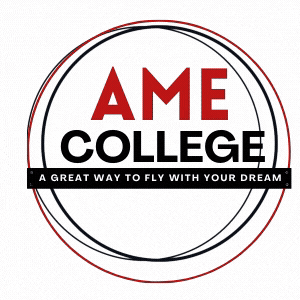If you’ve ever dreamt of an aviation career, you already know it’s more than just about flying aircraft. Behind every safe flight is a team of trained professionals, engineers, technicians, and managers who make sure everything runs smoothly. As someone who has spent years understanding this field, I can tell you that the journey begins with choosing the right college. And in India, the most important thing you must look for is DGCA recognition.
In this article, I’ll walk you through why DGCA approval is so critical and highlight some of the top aviation colleges in India that can help you launch a successful career.
Why DGCA Approval Matters
Think of DGCA approval as your professional passport in aviation. The Directorate General of Civil Aviation (DGCA) sets the standards for everything from training and safety to aircraft maintenance. When a college is DGCA‑approved, it means they’ve passed rigorous checks for infrastructure, qualified instructors, labs, hangars, and overall safety. For those pursuing Aircraft Maintenance Engineering, DGCA approval under CAR‑147 (Basic) is essential. Without it, your degree won’t translate into a valid license. In simple words, DGCA approval is what makes your qualification recognized by airlines, MROs, and aviation authorities worldwide.
Choosing the Right Aviation College
Picking a college isn’t just about academics—it’s about shaping your career. A DGCA‑recognized college ensures you don’t just learn from textbooks but also gain hands‑on exposure to live aircraft and real maintenance practices. The aviation industry values professionals who can apply knowledge to solve real problems, and the right institute will train you to do exactly that. Think of it as preparing yourself not just for today’s industry but also for future advancements in aircraft technology.
Leading DGCA‑Recognized Aviation Colleges in India
Based on experience and industry reputation, a few names always stand out:
The Institute of Aeronautics & Engineering (IAE) in Bhopal has built a solid reputation with strong courses in mechanical and avionics streams. Their focus on practical training ensures students leave with confidence.
The Sha‑Shib Group of Institutions operates one of the largest aviation training networks in Asia, with DGCA‑approved colleges spread across Pune, Mumbai, Bangalore, Bhubaneshwar, Gurugram, and Kolkata. A big advantage here is the group’s tie‑up with MROs, giving students real exposure to live aircraft maintenance.
The S.C. Moitra Air Technical Training Institute (SCM ATTI) in Kolkata is one of India’s oldest aviation colleges, established in 1948. Its long history and disciplined approach have shaped generations of successful AMEs.
Meanwhile, institutes like the Alpine Institute of Aeronautics in Dehradun and the Thakur Institute of Aviation Technology (TIAT) in Mumbai have earned respect for their modern facilities, updated teaching methods, and focus on practical skills.
What You Can Expect as a Student
Your learning journey at a DGCA‑recognized college is a mix of classroom theory and hands‑on experience. In lectures, you’ll study aerodynamics, aviation law, aircraft systems, and safety rules. In workshops, you’ll get your hands dirty—working on engines, inspecting structures, and learning avionics troubleshooting. Many colleges even give you access to live aircraft, where the real thrill begins. This combination is what prepares you to transition smoothly into professional roles once you graduate.
Career Opportunities After Graduation
The opportunities after completing a DGCA‑approved program are vast. Most graduates begin as licensed Aircraft Maintenance Engineers (AMEs), the professionals who ensure every aircraft is safe before takeoff. Others branch into avionics, powerplant, or structural maintenance. With India’s aviation industry expanding rapidly, and airlines around the world seeking skilled AMEs, you’ll find plenty of opportunities both at home and abroad.
Challenges Along the Way
Aviation is a rewarding field, but it’s not without challenges. The competition is tough, and continuous learning is non‑negotiable. New technologies—from digital cockpits to composite aircraft—require professionals to stay updated. The cost of aviation education is another consideration, so planning your investment is important. But if you’re truly passionate about aircraft and aviation, the effort pays off with stable careers and global opportunities.
Tips for Selecting the Best College
Here’s my professional advice: don’t just go by brochures or websites. Visit campuses if you can, talk to current students, and ask alumni about their experiences. Look at placement support, industry partnerships, and whether the college provides access to live aircraft. Most importantly, always confirm the institute’s DGCA approval status on the official website—it gets updated regularly.
The Future of Aviation Education in India
India’s aviation sector is on an upward trajectory. With policies like Atmanirbhar Bharat and the rapid expansion of airlines, the demand for skilled professionals is growing every year. DGCA‑recognized colleges will remain at the heart of this ecosystem, producing not only AMEs but also future leaders and innovators. In the years ahead, expect to see more emphasis on advanced technologies, green aviation practices, and global collaboration.
Conclusion
In short, DGCA‑recognized aviation colleges in India are your stepping stones to a rewarding aviation career. Whether you choose a historic institute like SCM ATTI, a wide network like Sha‑Shib, or modern setups like IAE and Alpine, the key is finding the college that matches your ambition. With the right choice and dedication, you’ll not only secure a stable career but also play an important role in shaping the future of aviation in India and beyond.
At AMECollege, we are dedicated to guiding students toward the right aviation education. We help you explore and compare DGCA-approved colleges in India, while also advising on the most suitable Aircraft Maintenance Engineering (AME) course for your career goals. Our mission is to remove the confusion from the decision-making process and ensure that every student takes an informed step toward a secure and rewarding future in aviation.

















